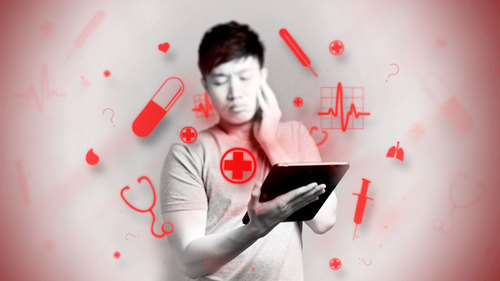La e-formation des professionnels de santé, les communautés en ligne et les plates-formes collaboratives
27/11/2013“La transition entrepreneuriale de la Santé résulte aussi de la digitalisation des outils” | L’Atelier: Disruptive innovation
27/11/2013Beware of Online Medical Information: The Huffington Post
Four of my six grandsons are under the age of six, so you can imagine the viruses, bumps, scrapes and bruises that they encounter. Just last week, for instance, one had a finger that was red and puffy from a cut, another had a cough that sounded like thunder, another feverishly barfed the night away, while another woke up and told his mother he couldn’t hear what she was saying to him!
For many of us, the medical advice found online seems like a pirate’s chest of riches compared to what was around when parents had only Dr. Spock to consult, but that’s not necessarily the case. « The reason is that much of what you read on the web and information shared through social media is sincere in its intent but generally strongly held personal opinion and conviction, » writes Jeremy Friedman and Natasha Saunders, two Canadian pediatricians who co-authored, with Dr. Norman Saunders, a new book entitled The A to Z of Children’s Health. Online information may be convincing, they write, « but not always in context, accurate, or even true. »
Read more at: http://www.huffingtonpost.ca/marilyn-linton/online-medical-information_b_4337727.html
See on www.huffingtonpost.ca




